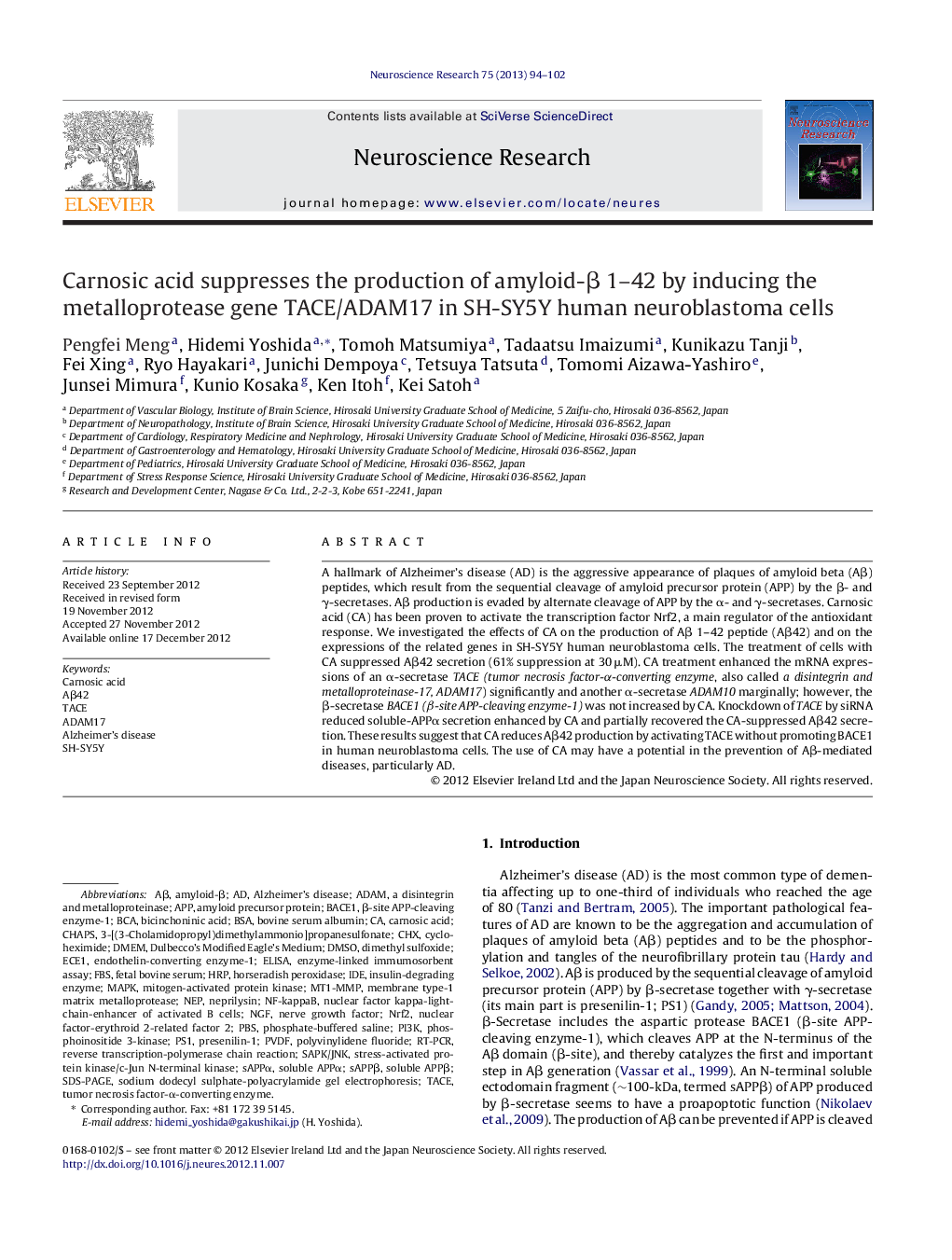| Article ID | Journal | Published Year | Pages | File Type |
|---|---|---|---|---|
| 4351740 | Neuroscience Research | 2013 | 9 Pages |
A hallmark of Alzheimer's disease (AD) is the aggressive appearance of plaques of amyloid beta (Aβ) peptides, which result from the sequential cleavage of amyloid precursor protein (APP) by the β- and γ-secretases. Aβ production is evaded by alternate cleavage of APP by the α- and γ-secretases. Carnosic acid (CA) has been proven to activate the transcription factor Nrf2, a main regulator of the antioxidant response. We investigated the effects of CA on the production of Aβ 1–42 peptide (Aβ42) and on the expressions of the related genes in SH-SY5Y human neuroblastoma cells. The treatment of cells with CA suppressed Aβ42 secretion (61% suppression at 30 μM). CA treatment enhanced the mRNA expressions of an α-secretase TACE (tumor necrosis factor-α-converting enzyme, also called a disintegrin and metalloproteinase-17, ADAM17) significantly and another α-secretase ADAM10 marginally; however, the β-secretase BACE1 (β-site APP-cleaving enzyme-1) was not increased by CA. Knockdown of TACE by siRNA reduced soluble-APPα secretion enhanced by CA and partially recovered the CA-suppressed Aβ42 secretion. These results suggest that CA reduces Aβ42 production by activating TACE without promoting BACE1 in human neuroblastoma cells. The use of CA may have a potential in the prevention of Aβ-mediated diseases, particularly AD.
► Carnosic acid (CA) lowered Aβ42 production in cultured human neuroblastoma cells. ► CA enhanced the expression of α-secretase TACE without inducing β-secretase BACE1. ► Knockdown of TACE by siRNA suppressed the CA-induced soluble-APPα secretion. ► TACE siRNA partially attenuated the CA-suppressed Aβ42 secretion. ► CA may have a potential against Aβ-mediated diseases including Alzheimer's disease.
